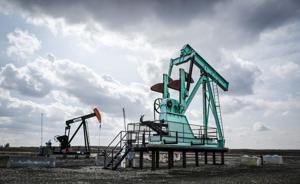Business
Major Fossil Fuel Producers Threaten Climate Goals, Report Finds

A recent report indicates that Canada and other leading fossil fuel-producing nations are significantly jeopardizing global efforts to meet climate targets. The analysis, released by the International Energy Agency (IEA), reveals that production levels by 2030 are projected to exceed double the amount necessary to achieve climate stability.
The report draws attention to the alarming discrepancy between the current trajectory of fossil fuel production and the commitments made under international climate agreements. According to the IEA, Canada’s output is among the highest, raising concerns about its role in the global energy landscape.
Projected Production Levels Raise Alarm
The IEA’s findings underscore a critical challenge: the world is on track to produce approximately 110 million barrels of oil per day by 2030, far surpassing the 40 million barrels deemed sustainable to limit global warming to 1.5 degrees Celsius above pre-industrial levels. This gap highlights the urgent need for policy shifts among major producers.
In Canada, the fossil fuel industry remains a cornerstone of the economy, contributing significantly to employment and revenue. However, the IEA’s report warns that continued reliance on fossil fuels not only threatens climate stability but also poses long-term economic risks as global markets shift towards renewable energy.
Policy Implications and Future Directions
Experts emphasize that governments must take decisive actions to align their energy policies with climate commitments. The report calls for a comprehensive strategy that includes transitioning to renewable energy sources, enhancing energy efficiency, and implementing stricter regulations on fossil fuel production.
Global leaders face a critical juncture as they prepare for upcoming climate summits. As countries grapple with the dual challenges of energy security and climate change, the findings from the IEA serve as a stark reminder of the need for immediate and effective policy responses.
Failure to address the widening gap between production and targets could undermine decades of progress in climate action, leading to more severe environmental consequences. The international community must prioritize collaboration and innovation to ensure a sustainable energy future.
As Canada and other fossil fuel producers navigate this complex landscape, the pressure to adapt and evolve in response to climate imperatives intensifies. The choices made in the coming years will be pivotal in shaping both the future of the planet and the economic landscape of energy production.
-

 Politics4 weeks ago
Politics4 weeks agoSecwepemc First Nation Seeks Aboriginal Title Over Kamloops Area
-

 World5 months ago
World5 months agoScientists Unearth Ancient Antarctic Ice to Unlock Climate Secrets
-

 Entertainment5 months ago
Entertainment5 months agoTrump and McCormick to Announce $70 Billion Energy Investments
-

 Science5 months ago
Science5 months agoFour Astronauts Return to Earth After International Space Station Mission
-

 Lifestyle5 months ago
Lifestyle5 months agoTransLink Launches Food Truck Program to Boost Revenue in Vancouver
-

 Technology3 months ago
Technology3 months agoApple Notes Enhances Functionality with Markdown Support in macOS 26
-

 Lifestyle3 months ago
Lifestyle3 months agoManitoba’s Burger Champion Shines Again Amid Dining Innovations
-

 Top Stories2 months ago
Top Stories2 months agoUrgent Update: Fatal Crash on Highway 99 Claims Life of Pitt Meadows Man
-

 Politics4 months ago
Politics4 months agoUkrainian Tennis Star Elina Svitolina Faces Death Threats Online
-

 Sports5 months ago
Sports5 months agoSearch Underway for Missing Hunter Amid Hokkaido Bear Emergency
-

 Politics5 months ago
Politics5 months agoCarney Engages First Nations Leaders at Development Law Summit
-

 Technology5 months ago
Technology5 months agoFrosthaven Launches Early Access on July 31, 2025



















